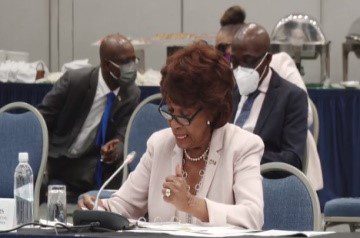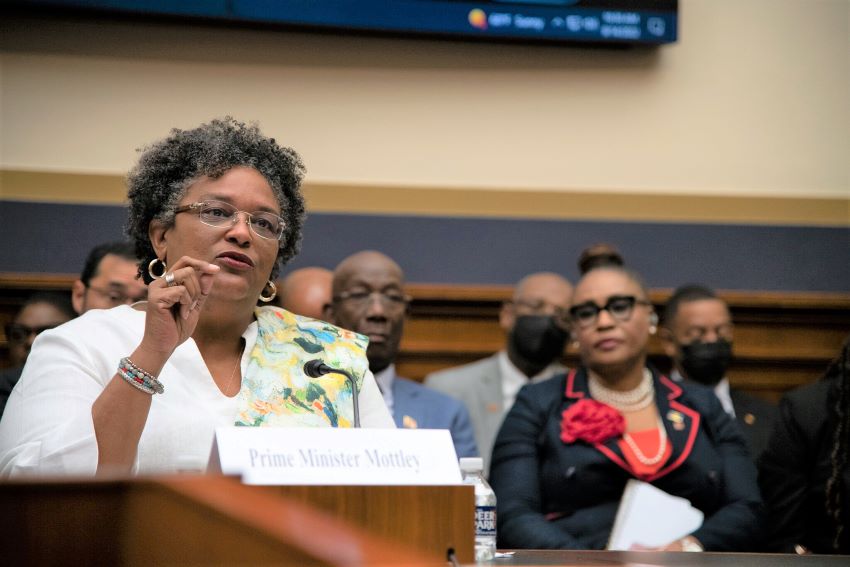bout two weeks ago, from June 26-28, 2024, the global body that sets standards for countering money laundering, terrorism financing and proliferation financing, an entity called the Financial Action Task Force (FATF), met for three days in Singapore. As usual with these meetings, discussions were had about ways to prevent money laundering, terrorism financing, and other financial crimes. At the end, as with others, there were two outcomes: the issuance of new guidelines for dealing with financial crimes and an updated list of countries with weak measures to combat money laundering, terrorism financing and proliferation financing risks.
That second outcome, the updated list, did not include Jamaica for the first time in over four years. In other words, Jamaica was no longer on the so-called “grey list” which the FATF issues to signal countries that are not doing enough to combat financial crimes. But, what does this even mean for ordinary people? Turns out, it means much more to everyone and not just the Government or those “bigger heads” running large companies or banks.
First things first. If there is a “grey list”, what other lists are there from the FATF?
Officially, there is a grey list and a black list, but no official white list, though the term is used sometimes.
The white list, while not officially a FATF list, encompasses all countries and territories that are not on the grey list or the black list. Countries are not normally named to be on a white list, but it is understood that once your country’s name is not on a list, you are seen as maintaining systems that comply with the fighting money laundering and the financing of terrorism as outlined by FATF.
When a country is added to the FATF’s “grey list”, it means they’re not doing enough to stop these financial crimes. This warning tells other countries to be cautious when dealing with the grey-listed country. Being on the grey list can have serious economic consequences, including: less foreign investment, higher costs for businesses, restrictions on international transactions, banks may avoid doing business with the country, and higher costs for government loans.
Overall, being on the grey list can make it harder for a country to do business with others and can harm its economy.
Being on the “black list” is the extreme and warns other countries not to do business with you.
What about Jamaica?
Jamaica has been removed from the FATF’s ‘grey list’ but what does that even mean?
Back in February 2020, Jamaica was added to FATF’s Jurisdictions under Increased Monitoring list, better deemed as the ‘grey list’. This list identifies jurisdictions that have submitted an action plan to FATF and are actively seeking to address strategic deficiencies in their regimes to counter money laundering, terrorist financing, and proliferation financing. It currently has 21 listed jurisdictions with new ones added and dropped as developments occur.
The action plan would outline what steps are being taken for the jurisdiction to improve compliance with the different recommendations/guidelines set by the intergovernmental body. This action plan can involve new legislation, increased oversight on certain sectors or bodies and improving the enforcement of protocols for different crimes.
Consequences
Had Jamaica not shown any substantial improvement to its protocols and improve compliance with FATF’s 40 recommendations, the country could have been added to FATF’s High-Risk Jurisdictions subject to a Call for Action, otherwise known as the ‘black list’. This list identifies jurisdictions with serious strategic deficiencies to counter money laundering, terrorist financing, proliferation financing and have not made serious inroads to correct these deficiencies. There are three jurisdictions on this list which include the Myanmar (formerly Burma), Democratic People’s Republic of Korea (North Korea) and Islamic Republic of Iran with the latter two countries also being deemed state sponsors of terrorism by the United States of America (USA).
FATF calls on its members to apply enhanced due diligence to countries on this ‘black list’ and in the most serious cases, apply countermeasures to protect the international financial system from risks that emanate from that country.
The biggest implication from being on the ‘black list’ comes from the potential loss of correspondent banking from international partners. Correspondent banking is what allows for a country like Jamaica to purchase oil, import goods and ability to interact with the rest of the global financial system. If you cannot use correspondent banks, a country has to find alternative means to settle transactions which can be quite difficult if that country doesn’t have natural resources to barter with. Also, citizens of the country might also find it extremely difficult to open bank or investment accounts in other countries due to the added compliance risk and cost to onboard a client from a country on that ‘black list’. This is quite problematic as a correspondent bank wouldn’t want to face financial sanctions or potentially lose its charter/licence, which means they’d just avoid doing business altogether with that country and its citizens.
Why was Jamaica added in the first place?
Jamaica as a country has continued to grow in the last two decades which has seen more economic wealth being built in that time. As a result, the financial assets in the country have continued to swell higher and higher. However, FATF made a change in February 2019 where it used a different metric to measure the size of financial assets in Jamaica.
Thus, Jamaica’s financial assets under M2, a financial metric that measures the money supply which includes cash, checking deposits, and other deposits readily convertible to cash, was under US$5 billion. However, under the M3, a measurement which measures the entire money supply in the economy, Jamaica had fallen into a category which required it to be assessed by the FATF under International Cooperation Review Group (ICRG) and not work with the Caribbean Financial Action Task Force (CFATF). When combined with a recent FATF mutual evaluation, the country was added to the ‘grey list’ due to the relatively ‘weak’ compliance with numerous FATF recommendations.
The addition to the ‘grey list’ were noticeable during 2020 as several business leaders noted that regular business transactions took longer as their counterparties applied additional protocols when evaluating the risk of doing business with Jamaican firms. This situation was made worse by the fact that some sites like
Clarks.com doesn’t process Jamaican cards, some US brokerage firms stopped accepting potential Jamaican clients, even forcing some to close accounts, and even other international businesses just refusing to do business with Jamaicans.
Changes
This spurred the Government to work around the clock to try and meet its January 2022 deadline to be largely compliant with the different deficiencies identified. There were amendments to the Companies Act to require disclosure of beneficial owners, the regulation of the microcredit sector by the Bank of Jamaica (BOJ), regulating corporate trust providers through the Financial Services Commission and bringing designated non-financial businesses and professions (DNFBPs) such as attorneys-at-law under the anti-money laundering (AML) and combatting the financing of terrorism (CFT) regime. The BOJ & FSC also moved to a risk-based approach to regulating the financial sector, a move which allowed for the removal of the two references requirements by financial institutions.
All of these changes and enforcing the new standards were crucial for Jamaica to be compliant/largely compliant with 37 out of 40 FATF recommendations in Jamaica’s December 2023 follow-up report with CFATF. This is a substantial improvement to the January 2017 report where Jamaica was rated only 23/40 for compliant/largely compliant.
“The new rules give those least developed countries that pose a significant money laundering, terrorist financing or proliferation financing risk more time to work on their action plans. Whether low-capacity countries with limited financial sectors will no longer automatically enter active ICRG review. Instead, these countries will be monitored through the enhanced follow-up process which is a separate process. I think this is really a major step forward and would really benefit the least developed countries. We’re also urging countries that have good and strong capabilities and high capacity to lean forward to help these less developed countries. The overall aim is to push up and level up the capabilities and capacity of countries across the global network,” said FATF President T Raja Kumar at Friday’s hybrid press conference on the changes by FATF on the ICRG process.
The removal from the ‘grey list’ will mean that correspondent banks should feel more comfortable in Jamaica’s commitments to AML/CFT and other international firms can begin to more comfortable doing business with the average everyday Jamaican.
“This action has significant positive implications for the country’s reputation in the international financial community. The development will enhance confidence among investors and trading partners thereby improving Jamaica’s economic potential. Exiting the enhanced monitoring process also sends an important signal to correspondent banking partners, who facilitate the transfer of funds internationally, that Jamaica is a reputable jurisdiction that now should not require enhanced review of transnational transactions. In this context, exiting the FATF ‘grey list’ is an important milestone in a series of initiatives aimed at significantly reducing or eliminating the threat of further de-risking by correspondent banks. In the recent past, de-risking negatively impacted the ability of some Jamaican financial institutions to provide services to persons and businesses,” the BOJ noted in a release.
While Jamaica is off the FATF ‘grey list’, it can always be added back if it doesn’t maintain the standards it achieved in its most recent follow-up report. The country is set to chair the CFATF in December through Finance Minister Dr Nigel Clarke and work on implementing new guidelines surrounding virtual assets.
“The Jamaica Banker’s Association is very pleased to learn that Jamaica has been removed from the grey list and we consider this a significant achievement for the country and the banking industry. Over the years, members banks collaborated with government bodies, competent authorities, regulators, and other stakeholders as part of its participation in achieving this milestone. Financial institutions played a pivotal role in the achievement of this result and the country’s compliance with 37 of the 40 FATF recommendations. The industry will continue to work with all key stakeholders to ensure ongoing compliance to combat money laundering and the financing of terrorism,” said the jamaica bankers association in an e-mail with the Jamaica Observer.
Source: Jamaica Observer





